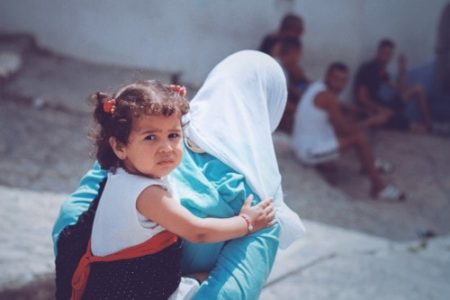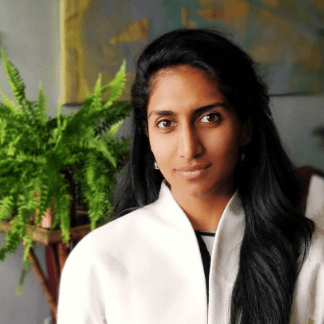Culture and diversity in psychological assessments and therapy
Shifting the cultural lens
Culture shapes psychology. Cultural belief systems are behind the way that an individual interprets and copes with problems, and equally dictates their help-seeking, support networks and fear of stigma. This poses a number of expectations on the skills of psychologists and psychotherapists. The emic perspective, viewing culture from inside, adopted by psychology recognises that individuals from various cultural groups should be “understood in their own terms”.
Different cultures sometimes explain symptoms in different ways. Consequently, with multiculturalism at an all-time high in the UK, it is important for psychologists to be aware of – and adapt to – more in-depth understandings of cultural context. Cultural self-awareness is the key to working with others, extending to an understanding of the biases of one’s own culture.
Assessing an unaccompanied asylum-seeking child
In 2015, there were 3,253 unaccompanied asylum-seeking children in the UK (Refugee Council, 2016). Common to all cultures is impact of separation, loss and trauma, although psychologically this will be expressed differently. Therefore, culturally-attuned mental health professionals need to recognise the different ways that children may cope or express fear, sadness or anger. A young person’s expectations can be very different in different cultures. Psychological assessments should consider the subjective experience of any adverse events that the child or their family has endured during their journey to the UK or in their home country, as well as the potential for developmental trauma.
The role of the psychologist is crucial to understanding the child’s experiences, yet this relationship may not be viewed as helpful by the child. Regardless of intention, previous negative experiences with authority figures or fear of culturally-relevant stigma may prevent engagement. Building a strong therapeutic trust helps to overcome these boundaries. There are times when the views and wishes of the child may not be in line with those of carers or social workers – often due to cultural beliefs. Dismissive or moral judgements on cultural behaviours or experiences may not be appropriate and risk the child ‘shutting down’.
On arrival, young asylum seekers commonly lack social support and have limited access to basic necessities such as safe housing or education. They are often at greater risk of further mental health problems. Psychological assessments can identify PTSD and other responses to traumatic events, such as problems with sleeping, anger, or challenging behaviour. In these cases, culturally-informed psychologists ask culturally appropriate questions and interpret psychometric tests carefully to avoid imposing Western standards.
Our expert, Karen Treisman, specialises in immigration cases involving unaccompanied children seeking asylum and children with attachment disorders at risk of harm. In her book, A Therapeutic Treasure Box for Working with Children and Adolescents with Developmental Trauma: Creative Techniques and Activities, she offers practical advice on how to work therapeutically with trauma in children from diverse cultural backgrounds.
Relationships, marriage and domestic violence
What is socially acceptable in one culture may be perceived as unacceptable in another, with ideals of marriage and relationship varying greatly across the world. Behavioural norms or expectations may even encourage violence and, due to gender norms, some cultural standards encourage men to have control over women or for women to remain married regardless of their treatment. As this is a cultural norm, people within these groups may categorise this as acceptable behaviour, causing difficulties in the assessment of domestic violence or abuse. To tackle this, we need to balance respect and understanding of other cultural values with our own cultural laws and norms.
Cultural acceptance of violence for conflict resolution or child discipline means that tolerance of violent behaviour is learned in childhood. These norms are generally unspoken, and an individual with a lack of cultural awareness may struggle to understand the underlying processes or risk misdiagnosis. Understanding the client’s awareness of expectations of violence as well as their desire to stand against social conformity may dictate a psychological assessment or therapeutic alliance. Repercussions of leaving a marriage or seeking help may also lead to disgrace or loss of respect from their family or community. In the immigration courts, this may also have legal repercussions that affect the individuals right to remain in the UK. An understanding of the potential risks of returning to their home country can help an expert appropriately qualify the individual’s psychological state.
Culture and trauma

Psychologists are trained to consider each family’s strengths and barriers to help-seeking and support and offer a tailored and culturally sensitive treatment plan. Accordingly, this requires identifying cultural variations in the perception of stress responses and understanding the role of beliefs in recovery.
Cultural sensitivity in expert witness psychologists and psychotherapists
Protecting a client from distress and harm is the top priority for experts working with vulnerable individuals and this extends to training in cultural sensitivity and discrimination, itself a foundational topic in psychology. Self-awareness of one’s own cultural background (and the coinciding assumptions or ignorance) is crucial. Readiness to think diversely about others is intrinsic to the work of a modern psychologist. Culture is also not limited to race and ethnicity but rather includes immigration and refugees, disability (e.g. deaf), homelessness, LGBT communities, and religious communities.
Nevertheless, knowing a culture is not all about training. We have experts from many walks of life, with both personal and professional experience of various cultural groups. We also have a range of languages spoken across our team, as well as experience with working with interpreters.
From an evolutionary perspective, mental illness is no different across diverse cultures; trauma, personality disorders, mood disorders – all the same constructs with the same origins around the globe. It is the way they are interpreted and expressed that is unique. Psychologists, as social scientists, are well placed to examine the relationship between cultural diversity and mental health. Cultural awareness is mandatory within clinical training, and consequently psychologists undergo a significant amount of preparation on how to work with people from all walks of life.

Dr Josling has vast experience with Caribbean culture, including the English and Patois spoken across the Caribbean Islands. She has experience of South Asian culture, specifically Indian, Pakistani and Bangladeshi. She speaks some Hindi and Urdu. |

Dr Kochuparampil has a wealth of experience in working with victims of trafficking, including individuals from Albania, Thailand and African countries. From South Indian descent, she speaks Malayalam and is very familiar with the cultural traditions of the Indian subcontinent and Arabian Gulf. |

Dr Wilson has experience in working with specialist populations including asylum seekers and refugees, and ex-military personnel. She has experience in specialist therapies, including providing EMDR through interpreters for torture survivors. |
||

Dr Dernevik has worked extensively with members of the deaf population and can communicate in British Sign Language. Dr Dernevik also speaks Scandinavian languages, being of Swedish descent. |

Dr Ishaq has extensive experience of working with Somalian individuals. As she is from East Asia, has a deep understanding of Chinese, Korean, Japanese, Malaysian, and Thai cultures. Dr Ishaq can speak Mandarin and Cantonese. |

Dr Wright has experience of working cross-culturally including Sri Lanka; Turkey, Cyprus, Poland, Russia; Czech Republic, Spain, Portugal, Afro-Caribbean, Asia, Vietnam and Afghanistan. |
As an agency, we won’t put experts forward for your case if we feel they are not capable of completing the work to a high standard. We make every effort to know our experts well, including their specialisms and cultural experience. If you require an expert with experience in working with a certain population, please let us know in your enquiry.

